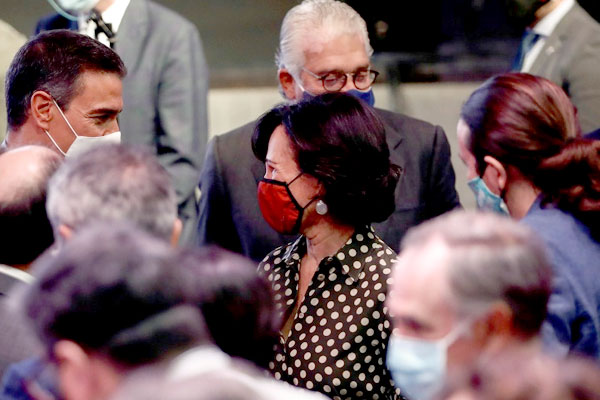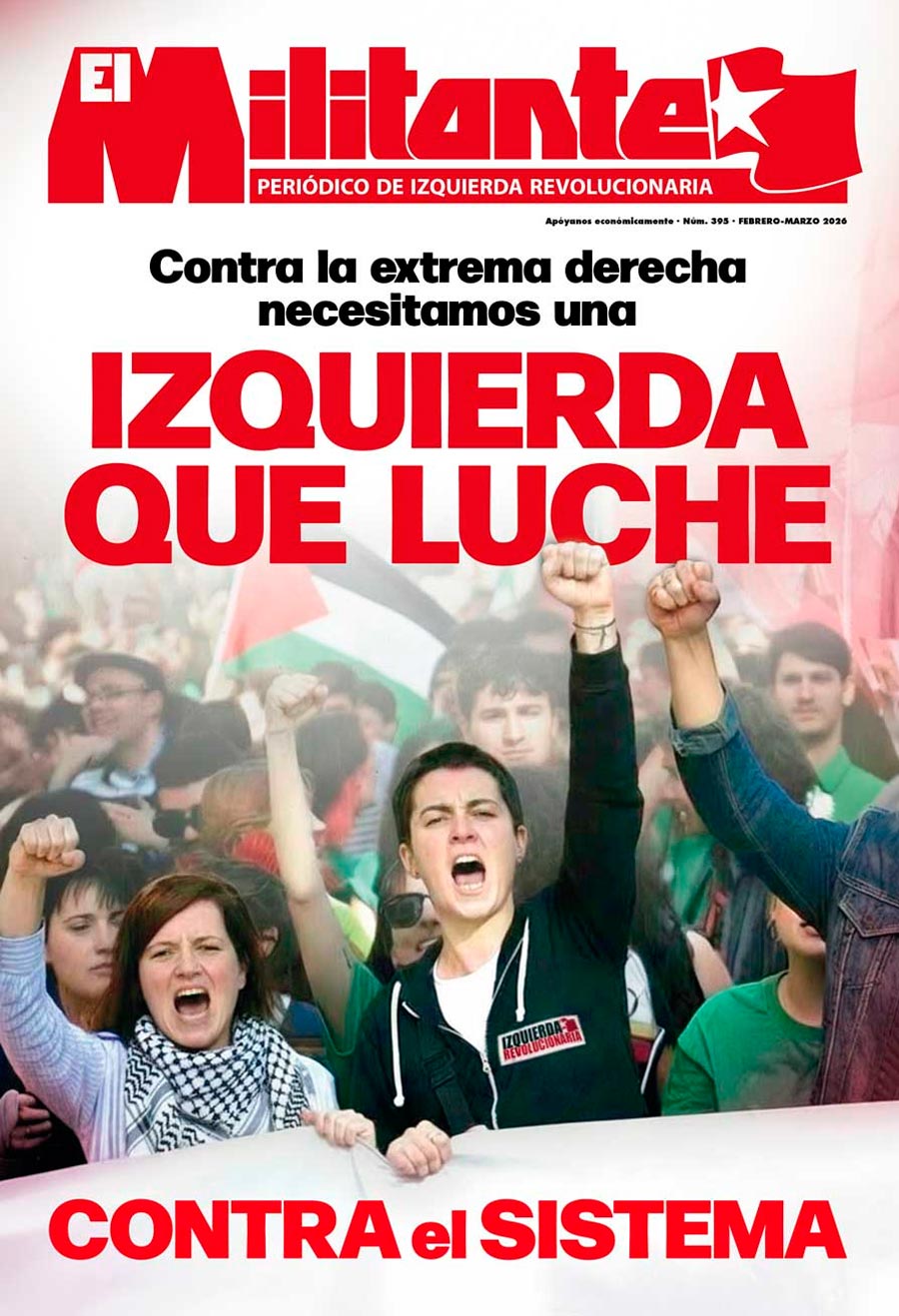Pedro Sánchez welcomed the new political year surrounded by the cream of the Spanish bourgeoisie, under the guise of their “Spain Can do it” slogan. Under the watchful eye of Ana Patricia Botín (Santander), Carlos Torres (BBVA), Florentino Pérez (ACS), José Ignacio Sánchez Galan (Iberdrola) and Pablo Isla (Inditex), the Spanish president appeals for “national unity” to overcome the crisis were met with applause from all the oligarchs. Sánchez praised the presence of CCOO and UGT, the two biggest unions, as well as of the Unidas Podemos ministers, led by Pablo Iglesias, now the government’s vice president.
The course of Pedro Sanchéz’s government fills the capitalists with delight. Although it was not their first option — they relentlessly fought for a PSOE-Ciudadanos government, supported from the outside by the PP —, they have quickly rerouted and mobilised all their pressure and persuasion to impose their agenda on the new government.
They know from experience that the PSOE leadership has a proven record in the safeguarding of capitalism, especially in its worst periods. What they did not know for sure was how the leaders of Podemos, especially Pablo Iglesias, would behave. But, looking at what is happening, they couldn’t be happier. The calls from Moncloa (president and vice president residency), appealing to unity, political stability and social peace are a safety guarantee. The coalition government has been clear in showing that they will not veer from the script written by IBEX35 (Spanish stock market).
An extremely Gloomy economical forecast
After a catastrophic summer, and with extremely worrisome economic data, the time for big economical “adjustments” looms near.
It is even closer after the Spanish ruling class and reformist parties placed all their faith on the agreement with the European Union, a covert “bailout” which will demand its ransom: new cuts and counter-reforms, starting with pension and wage slashes, massive layoffs with less redundancy pay, an increase in precarious work and exploitation to make “the economy more competitive”.
The “recovery in V” which was forecast a few months ago by Nadia Calvino, Economy minister, has been completely disproven by the facts: the OECD reported, for the whole summer season, an 18.5% fall in GDP in the second quarter, the greatest of all 37 OECD countries. The summer months- which were supposed to give a boost to the economy — have left a gloomy picture. The complete catastrophe in the tourism sector was confirmed in July, with a fall of 73.4% on occupancy in relation to last year.
In the industrial sector — which is in full contraction process, as we have witnessed with the Nissan and Alcoa factories — there was a fall of 14% considering the same period of 2019. With a record public debt — 1.29 billion euros, surpassing 100% of the GDP — the capitalists and their institutions, such as the Bank of Spain, are already sharpening the knives to impose new austerity measures on workers and their families.
Obviously, the ruling class does not ignore the explosive potential which is piling up. To manage such a deep crisis is not an easy task. The tremendous social polarisation, the shift to the left and the huge mobilisations that imposed, against the ruling class wishes, the PSOE-Unidas Podemos coalition government, together with a pandemic which has shown the system’s inability to guarantee the bare minimum for the population, are factors that do not help their objectives.
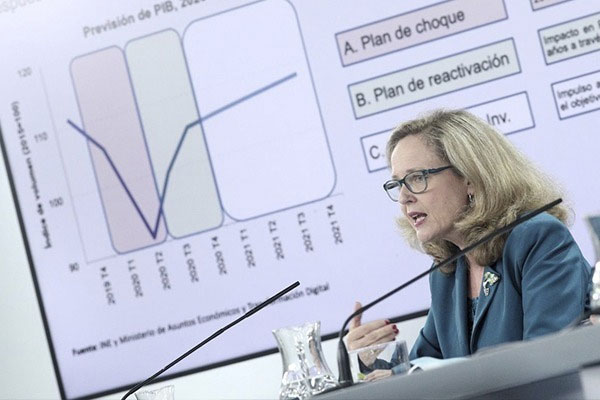
In a situation like this, marked by this pressure, the bourgeoisie has resorted to pragmatism. Its main objective — to safeguard its millions in profits — is to cool down the fervour of class struggle. And in that quest, the collaboration of the parliamentary left and unions to keep social peace is key. Leaning on the slogan of “national unity” lauded by Sánchez and the Podemos ministers, they are intent on bounding workers' hands and feet so they do not fight against the oncoming attacks.
The “budget of unity”… against the working-class
The next big task for the coalition government is to prepare the State Budget. A state budget that needs to satisfy the European Union, so the funds promised to the financial and business oligarchy are actually delivered.
Despite all the effort and rhetoric which tries to explain that the “solution” for this crisis is going to be completely different than for the 2008 crisis, the facts keep disproving it. The famous social shield has shown itself to be a complete failure in providing solutions for the misery and issues that affect millions of working-class families. Whilst Public Healthcare and Education are in the throes of catastrophe and without any resources to face a second wave, and the “Subsistence Income” has not reached even 1% of the claimants, things are completely different for big companies.
There have been zero difficulties for the business and finance sector to lavishly access 100 000 million euros, nor for the public purse to pay for all the wages and work benefits of the almost three and a half million workers affected by lay-offs — taking the capitalists, which have earned enormous profits, off the hook. Nevertheless, the bosses want more. They demand that the financial assistance continues after the 30th of September, and for the labour counter-reform imposed by the previous rightwing government to be kept in place. If not, they threaten to turn lay-offs into full-scale sackings. All of these demands are being accepted with no qualms by the government. These are the actions of the government. Actions that open the way for the right-wing.
But that was only the start. The growing proximity between Sánchez and Ciudadanos, and the message he has sent to the Popular Party — with support from the most important capitalists — leaves no room for doubt. The “dialogue” and “unity” that he demands have a clear intention: to approve a budget that satisfies Merkel, IBEX, CEOE (the business confederation) and the right-wing.
Under the narrative that we are all “soldiers in this war” and that we have to be united to beat the virus, the most common of ruses is hidden: demanding more sacrifices from the working-class and the renunciation of the major points agreed upon in the coalition with Unidas Podemos, such as the fiscal reform, the repeal of the counter-reforms and an end to social cuts.
It is not a surprise that Sanchéz has agreed to negotiate this kind of budget with Ciudadanos, nor that Ciudadanos eagerly accepts. The removal of Cayetana Alvarez de Toledo by Pablo Casado (Ciudadanos leader) is logical — it gives a nod to the layers of its party and the bourgeoisie in general that demand he supports this budget. Overall, the “Caeyetana revolution” (“demonstrations'' in the most affluent neighbourhoods of Madrid during the beginning of lockdown) that they stoked in the Barrio de Salamanca (Madrid) backfired — that first attempt to topple the government failed miserably, like the pathetic motion of censure presented by Vox leader Santiago Abascal.
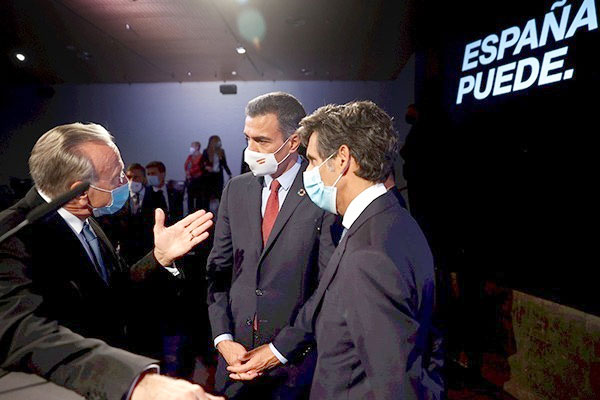
The problem is not that the bourgeoisie, the rightwing and social-democracy do everything in their power to guarantee the stability of Spanish capitalism and the ‘78 regime. The problem is that Unidas Podemos joins them in this mission, using rhetorical criticism just to immediately backtrack, and insisting in spending their political credit to give cover to a political strategy that goes against their interests and the interests of the working and oppressed classes.
If Pablo Iglesias thinks that this path will show his “realism”, thus avoiding the growth of the right-wing, he is sorely mistaken. This strategy will not only lead to further electoral disasters for UP, like the ones in Galicia and Euskadi (Basque Country), but it tremendously accelerates the break with their social basis and with the desire for social transformation by the millions of people that, with their action on the streets, lead to the irruption of Podemos.
Unidas Podemos needs to turn 180 degrees. No national unity and no social peace!
Pablo Iglesias' party signed the coalition agreement under the pretence that their place in government would push PSOE to the left. However, it has been exactly the opposite: Podemos has been dragged towards the right and, stepping into their role as “men and women with statesmanship”, they broke with the streets and their programme of fighting the big capitalists.
This shift has come at a tremendous speed. It is a fact that the pressure from their social base has pushed them into releasing critical declarations against their coalition partners, such as in the instance when Juan Carlos I fled to the United Arab Emirates. But they are nothing more than vacuous criticisms which are never followed by actions.
The last criticism, made by the spokesperson of Podemos, Isa Serra, regarding the negotiation of the budget with Ciudadanos, was backtracked in 24 hours. Now they are willing to negotiate with Ciudadanos because Sánchez has “offered” to debate a proposal on behalf of the whole government. What farce is this? Does it mean that Sánchez intended to completely ignore his coalition partner? And after this agreement is done and the UP leadership accepts the budget cuts imposed by Sánchez, will it change what they feel for Arrimadas (spokesperson for Ciudadanos and one of the most backward figures in that party)? Do they think they are such good negotiators that they will convince her of the necessity to fight against IBEX and CEOE to guarantee the rights of the working-class?
This is an example of the depths you reach when you rely on parliamentary cretinism, instead of resorting to mass struggle to defend a genuine programme. UP’s concessions and renunciations have multiplied tenfold since the start of the pandemic and consequent crisis, exactly when there is an even more urgent need for a left alternative.
With no intention of being sectarian, but with the aim of making constructive criticisms — because there is a lot at stake — we have to make clear that it is a profound error to accept the rationale behind lesser evilism and the arguments, based on parliamentary calculations, which say that there is no room to change things. The correlation of forces can only be ascertained and developed in the process of struggle, as Pablo Iglesias well knows. But instead of pushing for mobilisations, instead of breaking with the social peace imposed by PSOE and unions apparatus, they support it, justify it and theorise it. Falling for the politics of class collaboration, so desired by the Sanchéz and the big capitalists, they are contributing to the serious attacks suffered by the majority of the population.
PSOE, as the government leader, is behaving like a committed and agile protector of bourgeois interests. The natural notion that a right-wing government would be much worse is still on the minds of the working class, and this has given PSOE considerable room for manoeuvre. But PSOE is still a blind alley. Sánchez has used Unidas Podemos to dress up his measures on a “welfare” narrative with which he can work with few obstacles. And the ruling class plans to make Unidas Podemos an even more serious accomplice in their austerity agenda until there is nothing left of the party that promised to “take the heavens by storm” and topple the ‘78 regime. They want to use UP to disarm, delay and damage the massive social response and action from the streets that will come sooner or later.
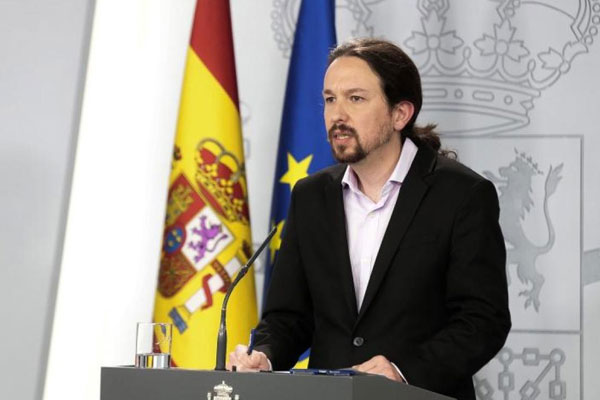
UP needs to break with this poisoned chalice, to stop with the strategy of cosmetic gestures, tweets and literary criticism, and drive for a real answer to all the attacks we are facing, relying on social mobilisation and with a programme that truly defends the interests of the working-class. That is incompatible with satisfying the market, Ciudadanos or the Troika. Pablo Iglesias has to choose: either the working-class or the “caste”.
Yes, there is an alternative! To struggle in the streets and communities with a revolutionary programme to change society
It is completely false that there are no forces to transform society and offer a real alternative to cuts and austerity. The mass mobilisations of women, of the Catalonian people for the republic, the General Strike in Euskal Herria or the amazing movement of the youth against repression, for the republic, against climate change and for an accessible and high-quality education for, this is what shows reality.
But change is not achieved inside ministerial offices, by reciting the Constitution nor by defending a state apparatus full of Francoists which do not hesitate to criminalise anything that smells of left — something UP is currently being a victim of. The 2008 crisis provided valuable lessons about what does not work: when you accept the logic of the capitalist system you end up saying that there is no alternative and applying savage measures against the working class. That happened to Tsipras in Greece and the social consequences are still being felt to this day.
Against an economic crisis of tremendous proportions, against the ferocious attack of the bosses, a left government that genuinely wanted to solve the problems and needs of the population would nationalise the banks and monopolies. It would defend public education and public health by hiring hundreds of thousands of qualified workers to reduce the student-teacher ratio and to support hospitals and health centres. It would put an end to the capitalist businesses of private health, privatised social care, and the pharmaceutical business, expropriating them and immediately placing them under state control.
A genuine left government would guarantee that every worker could have fully paid leave to ensure the wellbeing of their family. They would oppose sackings and wage cuts and would force the bosses to fully pay furlough and lay-offs from all the profits they have amassed in the last few years. They would immediately approve an indefinite unemployment subsidy of 1 200 euros until the worker could find suitable employment. They would repeal all labour and pension counterreforms and put an end to cuts. They would allow retirement at 60 years of age with 100% salary and dignified and quality employment for the youth. Would annul by law all evictions, create a wealth of adequate and accessible social housing and would expropriate the landlords and speculators. They would defend freedom and rights by repealing the “Gag Law” and purging the Francoists of the state apparatus.
We already know where the path proposed by Sánchez — a path of unity with our exploiters — leads. What we need is exactly the opposite: to build an alternative that struggles for the socialist transformation of society and that confronts the makers of this catastrophe.
Join the Revolutionary Left!






